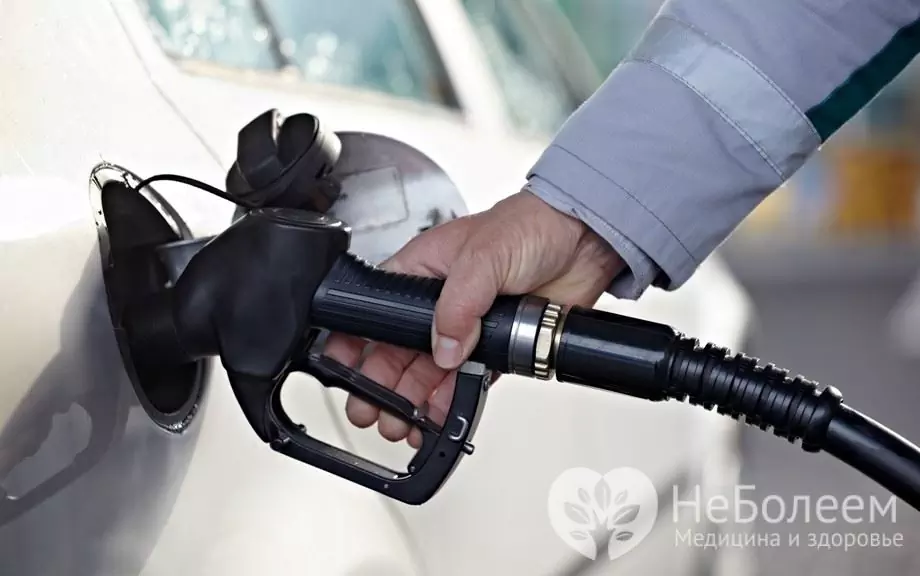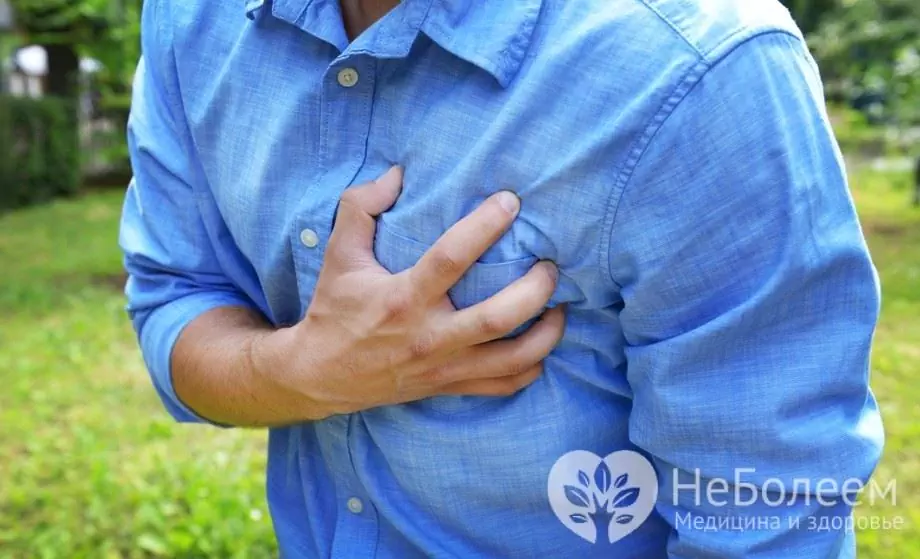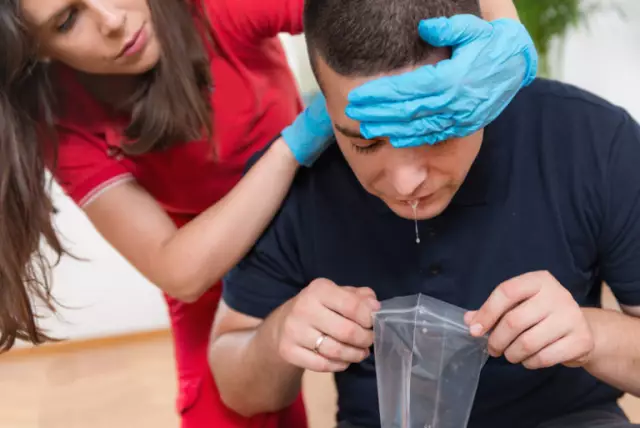- Author Rachel Wainwright wainwright@abchealthonline.com.
- Public 2023-12-15 07:39.
- Last modified 2025-11-02 20:14.
Poisoning by gasoline vapors
Gasoline is a flammable, colorless or yellow liquid with a characteristic odor. It is widely used as a fuel for road transport, in the rubber industry, as a solvent for varnishes and paints.

Source: depositphotos.com
Gasoline evaporates easily. Its vapors have a higher relative density than air and therefore concentrate closer to the earth's surface. Gasoline vapor poisoning is common not only among workers in oil refineries, but also among painters, gas station workers and other categories of people whose professional activities involve frequent contact with this substance.
How does gasoline vapor poisoning occur?
Inhalation of gasoline vapors at a concentration of 25-40 mg / l for several minutes can cause serious intoxication. Vapors of leaded gasoline, which contains tetraethyl lead, are especially dangerous.
Gasoline vapors enter the lungs with the inhaled air, and then enter the bloodstream and are carried throughout the body, accumulating in large quantities in the central nervous system. The mechanism of the toxic effect of gasoline vapors on the human body lies in their narcotic effect on the brain tissue. In addition, damage to the liver parenchyma, convoluted renal tubules and airway epithelium occurs.
Poisoning symptoms
The main signs of gasoline vapor poisoning are:
- chest pain;
- harsh cough, in which sputum is often observed with an admixture of scarlet blood;
- hyperemia of the face;
- Strong headache;
- belching with the smell of gasoline;
- nausea and vomiting;
- convulsions;
- disturbances of consciousness.
Inhalation of gasoline vapors in very high concentrations develops lightning poisoning. The victim quickly loses consciousness and, if urgent help is not provided to him, he may die.
People who, due to their professional duties, have been in contact with gasoline for a long time, may develop a chronic form of poisoning. It is characterized by:
- neurasthenia, hysteria;
- general weakness, increased fatigue, decreased ability to work;
- hypotension;
- sleep disorders and sleep patterns;
- loss of the ability to perceive smells correctly;
- disorders of menstrual function in women and erectile dysfunction in men;
- dysfunction of the digestive system (nausea, heartburn, diarrhea, alternating with constipation, flatulence).
With prolonged contact of gasoline and its vapors with the skin, its inflammation occurs, which can later turn into a chronic form of eczema.

Source: depositphotos.com
First aid for poisoning with gasoline vapors
A person who has been poisoned by gasoline vapors should be removed to fresh air as soon as possible. If he is unconscious, then he should be laid on his side to prevent tongue retraction or aspiration of vomit. When breathing stops, artificial lung ventilation is performed.
When is medical attention required?
In case of poisoning with gasoline vapors, you must immediately call an ambulance or take the victim to the poison control department.
The patient is shown oxygen therapy. With significant respiratory disorders, it becomes necessary to transfer the patient to artificial ventilation. For anti-inflammatory purposes, antibacterial drugs and corticosteroid hormones are prescribed. To improve respiratory function, respiratory analeptics are prescribed (Caffeine, Cordiamine, Camphor). To maintain cardiac activity, Korglucon is injected intravenously with a glucose solution. In order to relieve pain, a 1% solution of Promedol is injected intramuscularly.
Possible consequences
The most dangerous complication of gasoline vapor poisoning is toxic pneumonia. Inflammatory infiltrates are most often localized in the lower and middle lobes of the lungs, while the pleura is always drawn into the pathological process.
Prevention
Prevention of poisoning with gasoline vapors should be aimed at careful observance of safety rules when working with gasoline:
- the presence of good supply and exhaust ventilation in the room in which the work is carried out;
- use of personal chemical protection equipment (gloves, rubberized suits, gas masks).
Production workers who are systematically in contact with gasoline and its vapors must regularly undergo a medical examination. When signs of chronic poisoning are detected, it becomes necessary to transfer the employee to another area of work, with no occupational hazard.

Elena Minkina Doctor anesthesiologist-resuscitator About the author
Education: graduated from the Tashkent State Medical Institute, specializing in general medicine in 1991. Repeatedly passed refresher courses.
Work experience: anesthesiologist-resuscitator of the city maternity complex, resuscitator of the hemodialysis department.
The information is generalized and provided for informational purposes only. At the first sign of illness, see your doctor. Self-medication is hazardous to health!






